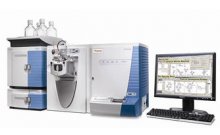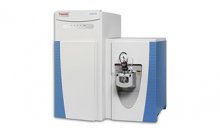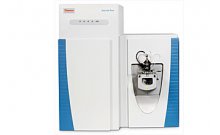LTQ Orbitrap鉴定胆汁中维拉帕米代谢产物
前言:
The identification of low-level metabolites, particularly those that are reactive or potentially toxic, is important to the characterization of drug candidates. Such knowledge helps to guide candidate selection and design more effective and safer drugs. Often, the detection of lowintensity analytes in complex biomatrices requires a second analysis of the sample after the initial survey run. To reduce false positives and to maximize efficiency of MSn experiments, we have developed a workflow for sample re-injection that employs a mass defect filter and time-based data-dependent accurate mass lists on the LTQ Orbitrap as described in Figure 1.
仪器:
LTQ Orbitrap hybrid mass spectrometer
结论:
Bile is one of the most challenging biological matrices for LC-MS/MS analysis because it has multiple high-intensity ions that can obscure the identification of potential metabolites. A strategy for re-interrogation of “in vivo” metabolite samples is demonstrated. By using a mass defect filter, component detection with MSn, and timedependent accurate mass inclusion lists, MSn spectra were triggered for several lower-level metabolites.




